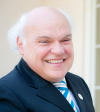Liberal and Conservative
Guest Correspondence
SRQ DAILY
SATURDAY NOV 10, 2018 |
BY DONAL O'SHEA
The word “liberal” is central to the identity of New College of Florida, though perhaps not in the way you’d think. Florida law designates New College as “the residential liberal arts honors college of the State of Florida” (see Florida Statutes section 1004.32).
So, we’re proud of the word liberal, even as we are very aware from political debate the term “liberal” and its partner “conservative” mean different things to different people. With the mid-term elections closing as I write, it is illuminating to examine the origins of these terms.
Sources point to the first use of “liberal” and “conservative” as shorthand for policy ideals of political parties by the Whigs and Tories in 1800s Great Britain. The origins of both words, though, are much older.
Liberal, as in liberal arts, comes from the Latin liberalis. Historians and classicists tell us that refers to the subjects that free men studied, such as reading and writing, logic and rhetoric, which gave them skills needed to be effective citizens. The root word, however, is liber, which means “free,” and it is also the root of “liberate.”
Thus, a liberal education is at the heart of being a free citizen, and ideally that liberal education will liberate students from what Socrates called “the unexamined life.” A liberal education encourages students to question old ideas in the hope of finding new, better ways. That is precisely how we view a New College education—more than anything else, it provides the ability to think critically, which is vital in any pursuit.
But students cannot develop new knowledge and those better ways unless they comprehend the body of knowledge developed by those who came before them. In other words, knowledge production requires knowledge.
That brings us to the word “conservative,” which, too, comes from Latin, the verb conservare, to preserve. The central purpose of the world’s institutions of higher learning, for a millennium, has been to preserve knowledge for the benefit of future generations. Without it, we would have no knowledge on which to build, and each generation would be starting anew.
So to advance what we know and can do in the world, education should combine the best of both liberal and conservative, under those definitions. At New College, undergraduate students study biochemistry and mathematics and psychology, but they also study ancient Greek and art history and philosophy. Master’s degree data science students study programming, machine learning and statistical modeling, but they also study ethics and decision-making to conserve and advance the common good.
At a time when the forum of politics places liberal and conservative in opposition, we should turn to these original meanings, and think of them instead as complementary. To succeed as scholars or as citizens, for the betterment of higher education or our republic, we need to conserve and respect the knowledge of the past, and then look beyond it and act freely, embracing new and better ways without fear or hesitation.
Dr. Donal O’Shea is president of New College of Florida.
« View The Saturday Nov 10, 2018 SRQ Daily Edition
« Back To SRQ Daily Archive










